The celebration of National Language Month in August has rekindled among Filipinos the love and great appreciation for 'Filipino' as the national language. In Sydney this was further fostered by Bigkas Serye, a series of online book reading of Filipino short stories staged by Sentro Rizal Sydney and the Philippine Consulate General in Sydney.
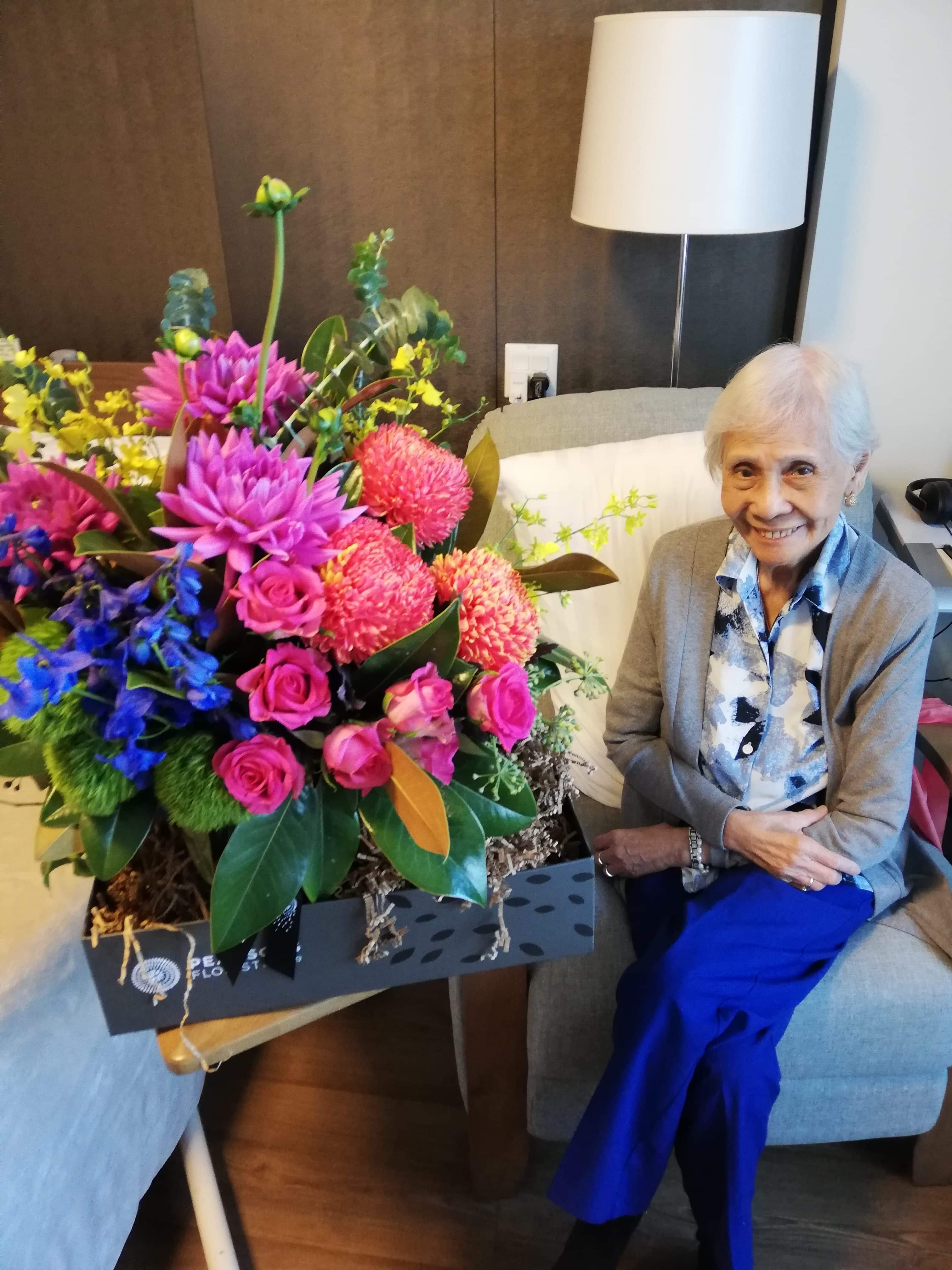
With the increased interest in 'Filipino', came the awareness of a significant achievement by the community in the years which dates back to the late 90's which may not be widely known in the present Fil-Aus community. This is having 'Filipino' approved to be a subject in high schools and as one of HSC exam subjects.
This was made possible through the was hard work by a group of community leaders to lobby the government and producing the required syllabus and other resource materials. One of these people is Mrs Linda Swords (nee Duque).
Linda played a major role in the inclusion of Filipino as a subject in Australian schools. She was appointed in 1996 as a member of the Consultative Committee and the Project Team by the NSW Board of Studies (now known as NSW Education Standards Authority). This committee undertook the task of writing and developing the Filipino syllabus in accordance with the guidelines set by the NSW Board of Studies.
Further information gathering revealed that Linda was one of the pioneers in the community and did a lot more aside from her involvement in the establishment of 'Filipino' in the educational system. The Australian Filipina is glad to share an insight into Linda through the Q&A that follows.
Q. Please share what your involvement with community outreach, projects, initiatives;
My involvement with the Filipino community started early when I took in some newly arrived Filipinos to stay with us (my family) until they can find a more permanent accommodation appropriate for their work place or some other reason. Independence was an instantly much needed learning process for settlement. After a year or so, we were already counting 60 or 70 eager to meet other compatriots; hence, a Christmas or New Year’s party at home was always well attended. All the more, a better reason to form groups was seen as a strong motivation for adhesion to the idea of being a Filipino, hence, Sandigan, Philippine Australian Friendship Association, PASC, Damayan, etc. were formed. Now, there would be as many organisations as provinces or towns in the Philippines with migrants to Australia to stamp themselves for identity.
There came a need then to unite the groups, associations, councils, etc. to encourage greater community participation in any capacity they can offer not only for the good of their family back home, but also to see what they can give to their newly adopted country for the next generation where now their children are growing up. I became involved with the FILCAA (Filipino Community Councils of Australia) and the Philippine Community Council of NSW for quite a while. Philippine Australian Council in Support of Filipino Women Philippine Australian Community Services Inc.
Increasingly, as the years went on, there came a new wave of migration from the Philippines different from the professionals and tradesmen who came earlier. The mid-eighties saw the arrival of Filipinos, mostly women, to join their Australian husbands or partners. There became problems that needed to be addressed immediately, some of which were quite serious to be ignored. There was a dearth of culture-based services from the Australian government specifically from the immigration department to address the needs of the newly arrived group.
The Filipino groups were not focussed on these kinds of services either. So the PACSFW of which I was the president for 12 years was established in 1989 with a grant from the Department of Immigration. Although the PACSFW was formed with the aim that it suggested, there were other problems which emerged that needed some attention too. Thus the organisation was renamed PACSI (Philippine Australian Community Services Inc.). The range of services developed to address the problems became more involved in the wider sense of the Filipino community – not ignoring marital status, gender, educational qualifications, religion, language, etc. Filipino as a High School Subject.
Q. Please share your involvement in getting Filipino approved as a HSC subject.
One of the most challenging problems of the coming of Filipino women to join their Australian husbands or partners was communication. Some women had young children with them either of school age or under school age. Although the children had a meagre knowledge of English, it was not enough to equip them for the basic tools needed for school, let alone communicating with the ‘new’ father who might insist that only English should be spoken at home, etc. Tension and confusion at home had become a problem.
A new language is not learned overnight. There was a need of understanding culturally, educationally and socially, etc. for the family to accept each other . While there were a few Saturday classes organised to teach Filipino, it was not structured to become a part of the school curriculum.
PACSI had been lobbying for the inclusion of Filipino as a subject in high school for some time, and at a committee meeting of PACSI, Mr. John Aquilina, MP, listened intently to some of the migration settlement problems the organisation was encountering. However, he recognised that there was truly a need of what we were earnestly lobbying for to help the children in their settlement in their new country. It was then at that meeting that started the ball rolling after he announced that yes, the Filipino language would be in the curriculum in the next school year.
Q. What do you hold fondly in your heart as your achievements in serving the community?
There is no particular memory or event I would hold fondly in serving the community. I would consider everything I did for the community was an achievement on my part. Empowering the newly arrived Filipino especially the women to avail of services, making decisions for herself or her young family, gradually recognizing the nuances of the Australian culture in the daily ways of life, gaining values that were helpful and many more are just some of the thoughts that come to mind as a matter of fact then.
That I did my best chairing the committee for so many years (12) indicated that the Department of Immigration had begun to recognise the migrations problems the new wave has brought and gave funding to the organisations which would develop programs to address the identified problems as well as emerging ones.
The multi-faceted problems which came to fore in migration not only of the Filipinos but other migrant groups, made settlement in the earlier days easier to deal with.
Q, On the flip side, what were the challenges you faced and overcame in the service for the community?
There is nothing that isn’t a challenge in serving the community. Everyone (thing) comes in different ways, paths, or with different causes. From past experience, I saw the change grow into more challenging work of the organisation. Motivations, focus and values have changed. So have people – the great motivators of a community.
And since communities are of people, there will always be challenges to surmount – challenges without which nothing will push the community to learn what and how to do better .
Q. If you are able to change anything in the past that you were involved in, are there things you would do differently?
I won’t change anything that the Filipino community did in the past for settlement in Australia. I saw the migrants grow; they learned and became more wizened; they made mistakes but survived.
I wouldn’t say either that all the directions we took were right, but for the lack of more vital services then, PACSI still exists helping Filipino migrants. Australia has also changed. The goverments have changed. The Filpino migrants ever so resilient, have now become mates with Australians in the spirit of Bayanihan.
How would you define success?
Success is indefinable. It doesn’t mean how much money one has in the bank; how big or extravagant a mansion one has; how knowledgeable one is or how many titles one can attach to his name.
Being able to do as best as one can is success enough - for best is limitless.
About Linda Swords
Linda whose parents are Sulpicio Duque (lawyer) and Florentina Tabije (teacher), is the middle child of in a family of two brothers and two sisters. The family lived in Dagupan City, Pangasinan province in the Philippines.
She graduated from the University of the Philippines with a Bachelor of Science in Education. She first came to Sydney, Australia as a Colombo Plan student at the University of Sydney in March, 1966 where she gained a Diploma in Teaching English as a Second Language in 1967 and a Master of Education in 1969.
Linda met her husband Ian a week after she arrived in Australia through a fellow exchange student who had come to Australia previously. They married in 1967. Linda and Ian travelled back to the Philippines so she could teach for a year to pay back her scholarship. She came back to Australia in March, 1970.
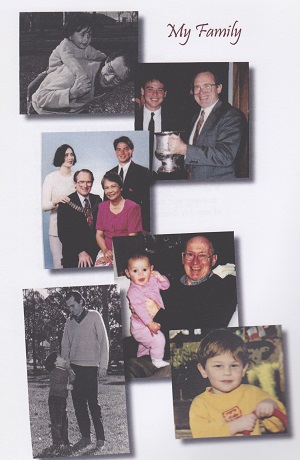 The union of Linda and Ian was blessed with two children – Raymond, a Qantas pilot, married to Kim Jagusch and Rani, who works as HR with Coller Capital (a Private Equity company, London). They have three grandchildren – Anika, Daniel, and Benjamin.
The union of Linda and Ian was blessed with two children – Raymond, a Qantas pilot, married to Kim Jagusch and Rani, who works as HR with Coller Capital (a Private Equity company, London). They have three grandchildren – Anika, Daniel, and Benjamin.
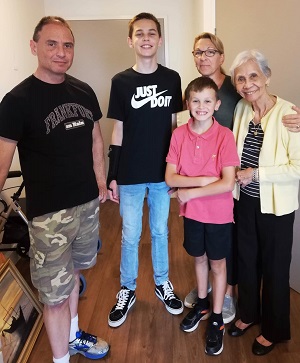
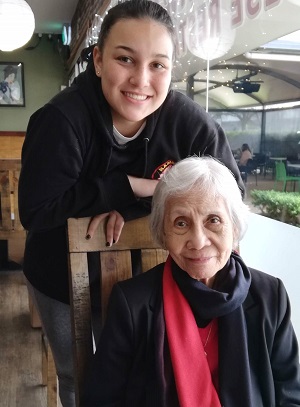
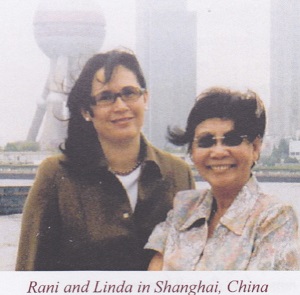
Her husband Ian served as a Councillor at Sutherland Shire Council from 1977 to 1995. During that time he was also Council President and Mayor.
In her spare time, Linda writes poems and stories and paints landscapes. A collection of her poems Spirit Reborn was sold to raise funds for Gawad Kalinga . One of the poems in the collection - Olympic - was published in The Australian Filipina as part of the commemoration of the Sydney 2000 Games, as well as Coronavirus 2020 which expressed her thoughts about the pandemic and impact on current and her aim to tell the future generation about it.
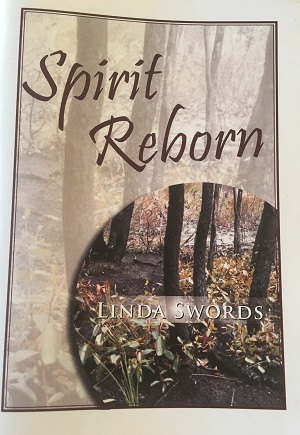
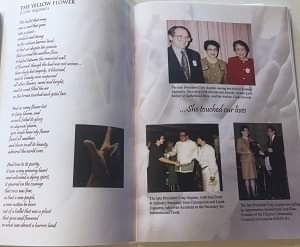
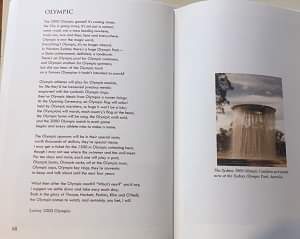
From us in The Australian Filipina, thank you so much Linda for all you have done and still doing for the Filipino-Australian and the wider community. You are indeed a woman of substance and a dedicated community servant.